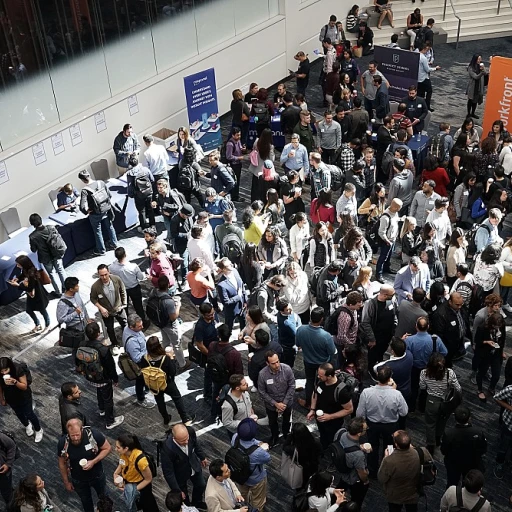
Understanding AI Integration in Work Tech
Grasping the Essence of AI in Modern Work Environments
Embracing artificial intelligence in work tech involves more than just technology implementation; it requires a thorough understanding of how AI can enhance project management and reporting processes. As businesses seek to optimize their operations, the integration of AI offers multiple pathways to streamline projects and improve efficiency. The role of AI in project management is multifaceted, aiding in task automation, accurate progress tracking, and fostering data-driven decision making. With the advent of sophisticated management tools, project managers can now leverage AI to predict potential issues before they affect the project status. Real-time tracking powered by AI can substantially transform how teams monitor project progress. Teams benefit from AI’s ability to analyze large data sets quickly, providing insights that were previously unattainable through traditional management tools.Navigating the New Landscape
As AI continues to be integrated into project management, team members are expected to adapt to new tools and methodologies. Managers have to ensure that teams are aligned with AI-driven strategies to fully harness the potential of this technology. The transition involves re-evaluating resource allocation and adapting project plans to accommodate AI insights. One critical aspect of AI integration is the ability to generate status reports that are not only comprehensive but also predictive in nature. AI can provide project managers with a clearer picture of project status, enhancing the accuracy of meeting notes and facilitating more informed decisions. For further insights on this intricate relationship, check out our in-depth exploration of AI-driven application processes. The adoption of AI in work tech is still in its early stages, and understanding its full impact requires continuous observation and analysis.Key Challenges in AI Integration Projects
Addressing Common Obstacles
Artificial intelligence integration into work tech environments is a multifaceted endeavor. A key challenge involves the meticulous coordination required to effectively manage project progress. Project managers must juggle multiple projects simultaneously, ensuring that each team remains aligned and focused on their objectives. This task can be complicated by limitations in resource allocation and the complexities of data-driven decision-making.
Real-Time Progress Tracking
One of the main hurdles is implementing tools that can provide real-time status reports. The success of AI integration projects hinges on the availability of accurate and timely data. Effective project tracking enables managers to predict potential issues and adjust project plans as needed. Utilizing advanced management tools, such as AI-enhanced task management applications, can streamline these processes significantly.
Communication and Collaboration Challenges
Communication pitfalls pose another significant challenge, particularly for teams spread across different geographical locations. Managers need robust systems for sharing meeting notes and status reports to ensure everyone is on the same page. Additionally, fostering a culture of open communication is critical to mitigate misunderstandings and enhance collaboration.
Resource Management Paradoxes
Effective resource management is a persistent challenge, particularly when integrating new technologies. Resource constraints often lead to delays in project status updates and hinder the overall project progress. Understanding how to leverage AI to optimize resource allocation can offer a significant competitive advantage.
For a deeper understanding, consider exploring how AI is transforming specific industries. For example, unlocking the potential of AI in medical code mapping sheds light on innovative applications and challenges that mirror those faced more broadly in AI integration efforts.
Strategies for Successful AI Integration
Crafting a Robust AI Integration Strategy
To ensure the success of AI integration projects, a well-defined strategy is crucial. This involves a comprehensive project plan that outlines clear objectives, timelines, and resource allocation. Project managers should focus on creating a data-driven approach that leverages management tools to facilitate decision making and progress tracking.
Effective Resource Allocation and Management
Resource allocation is a critical component in AI projects. Managers need to ensure that the right team members are assigned to tasks that match their expertise. This not only optimizes the use of resources but also enhances the overall project progress. Utilizing project management tools can aid in tracking resource allocation in real time, allowing for adjustments as needed.
Utilizing Advanced Project Management Tools
Incorporating advanced project management tools can significantly enhance the efficiency of AI integration. These tools offer features like real-time project tracking, status reports, and meeting notes, which are essential for maintaining transparency and accountability. By keeping all stakeholders informed of the project status, potential issues can be predicted and addressed promptly.
Fostering Collaboration Among Teams
AI integration projects often involve multiple teams working on various tasks. Encouraging collaboration and open communication among these teams is vital. Regular status reports and team meetings can help ensure that everyone is aligned with the project objectives and aware of any changes in the project plan. This collaborative approach not only boosts morale but also enhances the likelihood of successful project completion.
Monitoring and Reporting Progress
Continuous monitoring and reporting are essential to track the progress of AI integration projects. Project managers should establish a system for regular status reports that provide insights into the project status and highlight any potential issues. This proactive approach allows for timely interventions and adjustments, ensuring that the project stays on track and meets its objectives.
For more insights into the evolving landscape of work tech, explore the future of plug-and-play battery solutions in work tech.
Measuring Progress in AI Integration Projects
Evaluating AI Project Performance and Progress
Measuring the success and progress of AI integration projects is critical to ensure they meet their objectives effectively. With the sophisticated nature of artificial intelligence, project managers must employ a range of project management tools and strategies to maintain the project's momentum and track its trajectory accurately.
To effectively track progress in AI integration, consider these central components:
- Data-Driven Decision Making: Central to AI project success is leveraging real-time data to understand how well the integration meets performance benchmarks. Managers should utilize data analytics to predict potential success trajectories and identify any issues early on.
- Status Reports and Meetings: Regular project status meetings help ensure the entire team stays aligned on the project goals. Status reports provide a comprehensive overview, offering insights into resource allocation, task completion status, and potential bottlenecks.
- Task Tracking and Management: Utilize project tracking tools that allow for efficient management of tasks. Clear visibility into what each team member is working on helps in both dividing resources effectively and foreseeing any hurdles that might impede progress.
- Performance Metrics: Establish metrics that define what success looks like for your project. These metrics might include accuracy, speed, and the AI system's ability to integrate with existing workflows, among others.
- Resource Management: Accurate construction of a well-balanced team is paramount. Make sure that the resource allocation aligns with the demands of the project as it evolves.
- Continual Reporting: Continuous progress tracking is facilitated by maintaining up-to-date documentation like meeting notes and status reports. These tools help stakeholders stay informed and enable timely interventions if the project veers off course.
Understanding these elements is not mere theory; it is the foundation upon which AI projects can be successfully integrated into work tech environments. Project progress should be as transparent as possible, removing ambiguity and fostering a culture of accountability within teams.
Case Studies: Successful AI Integration
Successful Real-World Implementations
In the realm of artificial intelligence integration, several projects have demonstrated remarkable success in recent years. These initiatives have effectively harnessed the power of AI to bring significant advancements across various industries. Each case provides valuable insights into how AI can enhance project progress by offering data-driven solutions and predicting potential bottlenecks.
Manufacturing and Construction Sector
One notable example is the manufacturing and construction industry, which has successfully embraced AI to optimize resource allocation and streamline management workflows. Project managers have utilized AI reporting tools to gain real-time insights into project status and resource allocation. This ensures that management can make informed decisions based on up-to-date status reports, thereby increasing efficiency.
Project Management in Tech Companies
Tech companies have also made strides in leveraging AI for project tracking. By implementing AI-powered project management tools, these organizations have improved their capability to handle multiple projects simultaneously. With AI-driven project tracking, teams are now able to work more cohesively, with team members receiving timely updates on task progress and potential issues that may arise.
Data-Driven Decision Making in Financial Institutions
Financial institutions have taken advantage of AI's predictive capabilities to enhance their decision-making processes. Through analyzing vast amounts of data, these institutions can now craft more insightful project plans and predict project progress with higher accuracy. This capability aids in preemptively addressing any project risks, thus maintaining the overall project timeline.
AI in Healthcare Management
In the healthcare sector, AI has been integrated successfully to advance patient care and operational management. With real-time project progress tracking and AI-enhanced management tools, healthcare teams can monitor and manage tasks more efficiently. The integration of AI in these settings has paved the way for improved patient outcomes and optimized management of healthcare resources.












